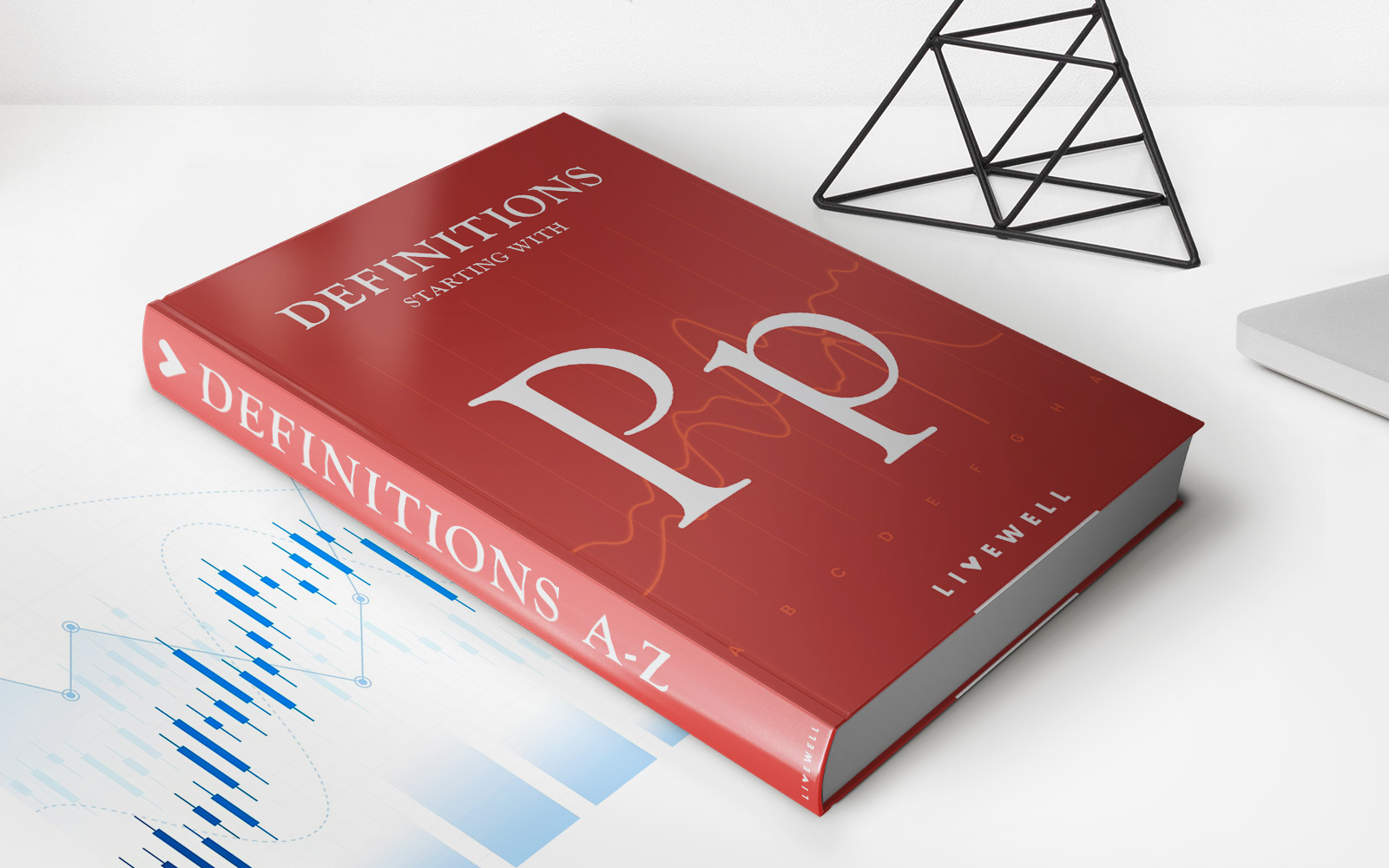

Finance
How Do Auto Loans Work From Credit Unions?
Published: February 18, 2024
Learn how auto loans from credit unions work and get the financing you need. Discover the benefits of credit union financing for your car purchase.
(Many of the links in this article redirect to a specific reviewed product. Your purchase of these products through affiliate links helps to generate commission for LiveWell, at no extra cost. Learn more)
Table of Contents
Introduction
When it comes to purchasing a new or used vehicle, many individuals rely on auto loans to finance their purchase. While traditional banks are a common choice for obtaining auto loans, credit unions offer a compelling alternative. In this article, we will explore the inner workings of auto loans from credit unions, shedding light on the benefits, application process, and eligibility requirements.
Auto loans from credit unions have gained popularity due to their competitive interest rates, personalized service, and member-focused approach. Understanding how these loans function and the advantages they offer can empower consumers to make informed decisions when financing their vehicle purchases. Whether you're a first-time car buyer or considering refinancing an existing auto loan, this comprehensive guide will provide valuable insights into the world of auto loans from credit unions.
Join us as we delve into the intricacies of credit unions, demystify the process of obtaining an auto loan from these financial institutions, and uncover the eligibility criteria and application procedures. By the end of this article, you'll be equipped with the knowledge needed to navigate the world of auto loans from credit unions with confidence and clarity. Let's embark on this enlightening journey to unravel the mechanics of auto loans from credit unions and discover the myriad benefits they offer to consumers.
What is a Credit Union?
A credit union is a not-for-profit financial cooperative that is owned and operated by its members. Unlike traditional banks, which are for-profit entities, credit unions exist to serve the financial needs of their members, offering a wide range of services, including savings accounts, checking accounts, loans, and other financial products. Members of a credit union typically share a common bond, such as being employees of the same company, belonging to the same community, or being affiliated with the same organization or association.
One of the defining characteristics of credit unions is their focus on member service and satisfaction. Since credit unions are owned by their members, they prioritize the best interests of their members, striving to provide competitive rates, low fees, and personalized customer service. This member-centric approach sets credit unions apart from traditional banks and creates a sense of community and shared responsibility among members.
Credit unions are governed by a volunteer board of directors, who are elected by the members. This democratic structure ensures that the credit union operates in the best interests of its members and reflects the needs and preferences of the community it serves. Additionally, credit unions are regulated and insured, providing a level of security and stability for their members’ deposits and financial transactions.
Overall, credit unions embody the principles of cooperation, mutual assistance, and financial empowerment. By pooling resources and working together, members of credit unions can access affordable financial services, including auto loans, that are tailored to their needs and designed to promote their financial well-being.
How Do Auto Loans Work from Credit Unions?
Auto loans from credit unions operate on the same fundamental principles as those from traditional banks, but with key distinctions that set them apart. When a member of a credit union seeks an auto loan, they have the opportunity to benefit from the institution’s member-focused approach and favorable terms.
Credit unions offer auto loans for both new and used vehicles, providing members with the flexibility to finance their car purchases according to their preferences and budget. These loans are typically structured as installment loans, where the borrower agrees to repay the borrowed amount, plus interest, over a specified period. The interest rates for auto loans from credit unions are often competitive, making them an attractive option for individuals seeking affordable financing.
One notable feature of auto loans from credit unions is the potential for personalized service and tailored solutions. Credit union staff members are often deeply invested in the well-being of their members and may take a more holistic approach to assessing loan applications. This can result in more flexible underwriting standards and a willingness to work with members to find the best possible financing options.
Additionally, credit unions may offer various terms and repayment options for auto loans, allowing members to choose terms that align with their financial goals and circumstances. Whether it’s a shorter loan term with higher monthly payments or a longer term with more manageable payments, credit unions strive to accommodate the diverse needs of their members.
Furthermore, credit unions may extend pre-approval for auto loans, empowering members with a clear understanding of their budget and purchasing power before they begin shopping for a vehicle. This pre-approval process can streamline the car-buying experience and provide members with confidence and leverage when negotiating with dealerships or private sellers.
Overall, auto loans from credit unions embody the principles of community, cooperation, and member-centric service, offering a compelling alternative to traditional bank financing. By understanding how these loans work and the benefits they offer, consumers can make informed decisions when seeking to finance their vehicle purchases.
Benefits of Getting an Auto Loan from a Credit Union
Obtaining an auto loan from a credit union presents a host of advantages that can significantly benefit borrowers. These benefits stem from the unique characteristics and member-focused approach of credit unions, setting them apart from traditional banks and lending institutions.
- Competitive Interest Rates: Credit unions are known for offering competitive interest rates on auto loans, often surpassing those of traditional banks. This can result in substantial savings over the life of the loan, making credit unions an attractive choice for cost-conscious consumers.
- Personalized Service: Unlike large banks, credit unions prioritize personalized service and member satisfaction. This often translates into a more individualized approach to lending, with staff members taking the time to understand the unique needs and circumstances of each borrower.
- Flexible Terms and Repayment Options: Credit unions frequently provide flexible terms and repayment options for auto loans, allowing borrowers to tailor their loan to suit their financial situation. Whether it’s adjusting the loan term or exploring various payment schedules, credit unions strive to accommodate the diverse needs of their members.
- Member-Centric Approach: As member-owned cooperatives, credit unions are inherently focused on serving the best interests of their members. This can result in a more empathetic and supportive approach to lending, with a genuine commitment to helping members achieve their financial goals.
- Community Involvement: Credit unions are deeply rooted in their communities and often engage in initiatives that benefit their members and the local area. By choosing a credit union for an auto loan, borrowers contribute to the cooperative spirit and community development efforts.
- Pre-Approval Process: Many credit unions offer pre-approval for auto loans, providing members with a clear understanding of their budget and purchasing power before they begin shopping for a vehicle. This can streamline the car-buying experience and empower borrowers during negotiations.
These benefits collectively position credit unions as a compelling choice for individuals seeking auto financing. By leveraging the advantages of credit union auto loans, borrowers can access affordable and member-focused lending solutions that align with their financial objectives and values.
Eligibility and Requirements for Getting an Auto Loan from a Credit Union
Obtaining an auto loan from a credit union is an accessible and straightforward process, with eligibility criteria and requirements designed to cater to the diverse needs of potential borrowers. While specific guidelines may vary among credit unions, there are general principles that govern eligibility and necessary documentation for securing an auto loan.
Membership: The primary requirement for obtaining an auto loan from a credit union is membership. Individuals must be members of the credit union to access its financial products, including auto loans. Membership eligibility often revolves around a common bond, such as residing in a particular community, being employed by a specific organization, or belonging to an affiliated group or association.
Identification and Personal Information: As with any loan application, borrowers are typically required to provide personal identification, such as a driver’s license or state-issued ID, as well as basic personal information, including contact details, social security number, and employment information. This information is crucial for verifying the borrower’s identity and assessing their financial stability.
Income and Financial History: Credit unions may request documentation related to the borrower’s income, such as recent pay stubs, tax returns, or bank statements. This information helps the credit union evaluate the borrower’s ability to repay the loan and assess their financial history and stability.
Vehicle Information: When applying for an auto loan, borrowers are typically required to provide details about the vehicle they intend to purchase, including the make, model, year, mileage, and identification number. This information assists the credit union in evaluating the vehicle’s value and determining the loan amount.
Insurance Requirements: Credit unions often require borrowers to maintain comprehensive insurance coverage for the vehicle securing the loan. This is to protect the interests of both the borrower and the credit union in the event of an accident or unforeseen damage to the vehicle.
Overall, the eligibility and requirements for obtaining an auto loan from a credit union are designed to facilitate a seamless and member-focused lending experience. By understanding and fulfilling these criteria, borrowers can access the benefits of credit union auto loans and secure financing for their vehicle purchases with confidence and clarity.
Applying for an Auto Loan at a Credit Union
Applying for an auto loan at a credit union is a straightforward and member-friendly process that prioritizes personalized service and financial empowerment. Whether you’re a long-standing member of the credit union or considering membership to access their financial products, the application process is designed to cater to the diverse needs of potential borrowers while upholding the cooperative values of the institution.
Membership: As mentioned earlier, membership is a prerequisite for accessing financial products, including auto loans, at a credit union. Individuals who are not yet members may need to complete a membership application and fulfill the eligibility criteria, which typically revolve around a common bond, such as residing in a specific community or being affiliated with a particular organization.
Loan Application: Once membership is established, borrowers can initiate the auto loan application process. This often involves completing a loan application form, which gathers essential information about the borrower, the desired loan amount, the intended vehicle purchase, and other pertinent details. The application form may be available online or at the credit union’s branch, offering convenience and accessibility to members.
Documentation Submission: Alongside the loan application, borrowers are typically required to submit documentation to support their application, such as proof of income, identification, vehicle details, and insurance information. Credit union staff members are available to assist borrowers in preparing and submitting the necessary documentation, ensuring a smooth and efficient application process.
Loan Evaluation and Approval: Upon receiving the completed application and supporting documentation, the credit union’s lending team evaluates the borrower’s financial profile, creditworthiness, and the details of the proposed auto loan. This assessment may involve a review of the borrower’s credit history, income verification, and an appraisal of the intended vehicle. The credit union aims to provide a transparent and member-focused evaluation process, offering support and guidance to borrowers throughout the review stage.
Loan Closing and Disbursement: Once the auto loan application is approved, the credit union finalizes the loan terms, including the interest rate, repayment schedule, and any additional conditions. Upon agreement, the loan is closed, and the funds are disbursed to the borrower or the seller, facilitating the purchase of the vehicle. Throughout this process, credit union staff members are available to address any questions or concerns, ensuring that borrowers are well-informed and confident in their financing decisions.
Applying for an auto loan at a credit union embodies the values of cooperation, community, and member-centric service, offering borrowers a supportive and empowering experience. By leveraging the accessible application process and the personalized assistance provided by credit union staff, individuals can secure auto financing that aligns with their financial goals and reflects the cooperative spirit of the institution.
Conclusion
Exploring the world of auto loans from credit unions reveals a compelling landscape of member-focused lending, competitive rates, and personalized service. Credit unions, as not-for-profit financial cooperatives, prioritize the financial well-being of their members, offering a range of benefits and a seamless application process for auto loans.
By choosing a credit union for an auto loan, individuals gain access to competitive interest rates, flexible terms, and a supportive, community-oriented approach to lending. The emphasis on personalized service and tailored solutions sets credit union auto loans apart from traditional bank financing, empowering borrowers to make informed decisions and achieve their vehicle ownership goals.
Furthermore, the eligibility criteria and application process for credit union auto loans are designed to accommodate the diverse needs of potential borrowers, fostering a cooperative and inclusive environment that reflects the values of the institution. Members can navigate the application process with confidence, leveraging the expertise and guidance of credit union staff to secure financing that aligns with their financial objectives.
Overall, auto loans from credit unions epitomize the principles of cooperation, mutual assistance, and financial empowerment. By choosing a credit union for auto financing, individuals contribute to a community-driven approach to lending and access a wealth of benefits that enhance their vehicle ownership experience.
As you consider your options for auto financing, exploring the offerings of credit unions can open doors to a member-centric, cost-effective, and supportive lending experience. Whether you’re purchasing a new or used vehicle, seeking to refinance an existing auto loan, or simply exploring alternatives to traditional bank financing, credit unions stand as a compelling choice for securing the auto loan that aligns with your needs and values.














